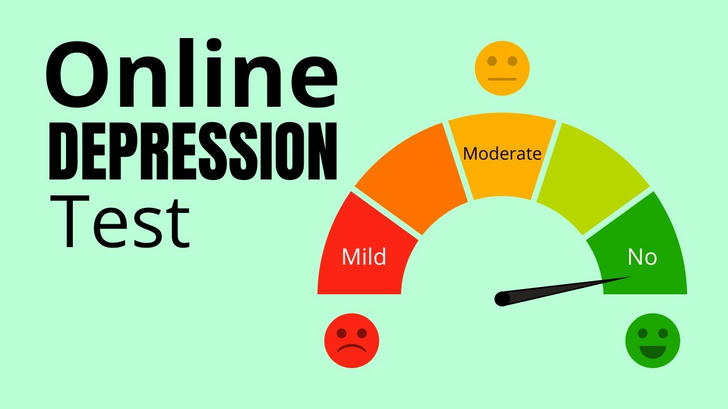Are You Really Depressed? 9 Questions to Tell You the Answer
In today’s fast-paced world, many struggle silently with depression—a complex condition that goes beyond simple sadness. This article offers a self-assessment guide with nine key questions to help you reflect on your emotional state. In just five minutes, you can gain insights into whether you might be experiencing depression, while learning about different types of depression and the importance of proper self-assessment.

Understanding Depression
Depression is a multifaceted mental health condition that affects mood, energy, and overall quality of life. It comes in various forms, such as major depressive disorder, persistent depressive disorder, and seasonal affective disorder. Understanding the different types of depression is crucial because each type has unique symptoms and challenges. This foundational knowledge empowers individuals to recognize signs in themselves or others, highlighting that depression is not merely a matter of feeling down but a serious condition that warrants attention.
The Importance of Self-Assessment
A depression self-test can serve as an initial checkpoint to evaluate your mental health. While it is not a substitute for professional diagnosis, a well-constructed self-assessment can reveal patterns and symptoms that may otherwise be overlooked. Taking five minutes to answer the following nine questions helps you gauge your emotional well-being and identify areas that might require further evaluation. Self-assessment encourages reflection and can be a valuable tool in understanding whether your mood fluctuations are part of a broader issue.
Introducing the 9 Key Questions
This guide is built around nine essential questions designed to prompt honest reflection about your mental health. These questions address various aspects such as changes in mood, interest in activities, sleep patterns, energy levels, and feelings of hopelessness. Answering these questions thoughtfully can provide clarity and indicate whether it might be time to seek professional advice. Here are the nine questions to ask yourself:
Have you experienced persistent feelings of sadness or emptiness over the past few weeks?
Have you lost interest or pleasure in activities you once enjoyed?
Have you noticed significant changes in your sleep patterns, such as insomnia or oversleeping?
Do you often feel fatigued or lack energy even after adequate rest?
Have you experienced noticeable changes in your appetite or weight, either loss or gain?
Do you find it difficult to concentrate, make decisions, or remember details?
Have you felt excessive guilt, worthlessness, or an overwhelming sense of self-blame?
Do you struggle to cope with everyday stress or feel consistently overwhelmed by your responsibilities?
Have you had thoughts of self-harm, or felt that life isn’t worth living?
How to Approach the Test
When taking this depression self-test, honesty is key. Set aside a quiet moment free from distractions and answer each question based on your recent experiences. It is important to reflect on how you have felt over the past few weeks rather than on a single day. Consider the frequency and intensity of each symptom mentioned in the questions. Remember, the goal is not to label yourself but to understand your emotional state better. If you find that many of your responses indicate persistent low mood or other concerning symptoms, it may be worthwhile to consult a healthcare professional.
Global Insights and Self-Assessment Tips
Around the world, self-assessment tools for depression have helped countless individuals begin their journey toward mental wellness.
Studies show that early detection through self-assessment can lead to better treatment outcomes.
Different cultures report variations in the expression of depressive symptoms, making self-awareness even more critical.
Incorporating self-tests into routine mental health checks is becoming a common practice globally.
Reliable self-assessment tools are continuously being refined based on international research and clinical insights.
These insights reinforce that while self-tests are valuable, they are only the first step in understanding and addressing mental health.
Interpreting Your Results
After answering the nine questions, it is important to interpret your responses with care. A higher number of affirmative answers might indicate that you are experiencing symptoms commonly associated with depression. However, self-assessment is not a definitive diagnosis. Instead, it should serve as a prompt to consider speaking with a mental health professional who can provide a comprehensive evaluation. Understanding your results can empower you to take proactive steps in managing your mental health, whether that means lifestyle adjustments, therapy, or other interventions.
Depression self-tests provide a snapshot of your current mental state and can be a useful tool in recognizing when to seek help. They are designed to guide your self-reflection, not to offer a medical verdict. By understanding the types of depression and carefully answering the nine key questions, you can gain valuable insight into whether your symptoms warrant further professional discussion.
Disclaimer
The shared information of this article is up-to-date as of the publishing date. For more up-to-date information, please conduct your own research. This article is for informational purposes only and should not be considered medical advice. Please consult a qualified healthcare professional for personalized guidance and treatment.
